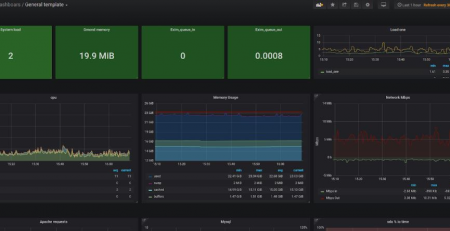Understanding the Importance of GDPR in the IT Sector
Are you curious about the buzzword that has been attracting attention across IT sector – GDPR? Contrary to a bunch of GDPR headlines, not everybody is familiar with this term. In this blog post, we are going to dive deep into the world of data protection and uncover why lawfulness, fairness, and transparency have become crucial components for every organization operating in this digital era. So sit tight and get ready to unravel the secrets behind GDPR’s profound impact on the IT industry.
Introduction to GDPR and its background
The General Data Protection Regulation, or GDPR, is one of the most significant changes in data privacy regulation in recent years. It was adopted by the European Union (EU) on April 27, 2016, and came into effect on May 25, 2018. This strict regulation has sparked widespread discussions about data protection and privacy rights worldwide.
The GDPR is a comprehensive update to EU’s current data protection laws under the General Data Protection Directive of 1995 (Directive 95/46/EC). The directive was introduced at a time when technology and digital innovation were far less advanced than today. With ongoing advancements in technology, companies now collect and process massive amounts of personal data from individuals around the world. However, this has led to interference with people’s right to privacy.
To address these concerns and bring more accountability for how organizations handle personal data, the European Commission realized that there was a need for an updated law to protect citizens’ rights within the EU. Thus, GDPR was created as a replacement for the outdated Data Protection Directive.
The primary goal of GDPR is to give greater control over personal data back to individuals while also simplifying regulations for international businesses operating within the EU region. Not only does it aim at protecting citizen’s rights but also aims at ensuring consistency when it comes to handling sensitive information across all member states.ⓘ
One essential aspect of GDPR is its principle of “lawfulness, fairness, and transparency.” This means that every organization must have proper reasons or legal basis (lawful) for collecting personal data from individuals. Organizations must also be transparent about the data they collect, how it will be used, and for what purpose.
Who is primarily responsible for protecting data privacy (N=2601)

Source: Cisco 2019 Consumer Privacy Survey (Report)
Explanation of the 7 principles of GDPR
GDPR is a comprehensive set of data protection rules. It was designed to provide individuals with more control over their personal data and to harmonize data protection laws across the European Union. The GDPR introduces seven principles that organizations must abide by when processing personal data. Let’s dive deeper into each one of these principles and understand their importance in the IT sector.
Lawfulness, fairness, and transparency
Lawfulness, fairness, and transparency are three crucial principles of the GDPR that organizations in the IT sector must adhere to. These principles are designed to protect the rights and privacy of individuals by ensuring that their data is collected, processed, and used in a lawful, fair, and transparent manner.
In the IT sector specifically, organizations often collect large amounts of personal data without always having a valid legal basis for doing so. With GDPR in place, businesses must ensure that they have a valid reason for collecting an individual’s data before doing so. This not only protects individuals’ rights but also helps organizations focus on relevant and necessary data collection rather than excessive and unnecessary harvesting.
Overall, adhering to these three principles helps organizations build trust with their customers and ensures that individuals’ rights are protected when it comes to their personal data. By following these principles, organizations in the IT sector can demonstrate their commitment to ethical and responsible handling of personal data, which will ultimately benefit their reputation and relationships with customers.
Purpose limitation
Purpose limitation is a fundamental principle of the GDPR that aims to protect the rights and freedoms of individuals by ensuring that their personal data is collected only for specified, explicit, and legitimate purposes. It requires organizations in the IT sector to clearly define the purpose for which they are collecting personal data and to ensure that it is used only for those specific purposes.
Under this principle, organizations must have a valid legal basis for processing personal data. This means they must be able to justify why they need certain data and how it will be used. The GDPR outlines six lawful bases for processing personal data: consent, contract performance, legal obligation, vital interests, public task, and legitimate interests. Organizations must choose one of these bases before collecting any personal information from individuals.
In summary, purpose limitation ensures that organizations have a valid reason for collecting and using personal data, and that they only use it for specific purposes that have been clearly communicated to individuals. This principle helps protect individuals from having their data used or shared in ways they did not expect or consent to.
Data minimization
Data minimization in GDPR is a crucial aspect of protecting individual’s personal data in the IT sector. It refers to collecting, processing, and retaining only the minimum amount of personal data necessary for a specific purpose. This means that organizations must carefully consider what information they are collecting from individuals and limit it to what is necessary for their stated purpose.
The ultimate goal of data minimization is to reduce the risks associated with processing personal data, such as identity theft, fraud, or unauthorized access. By limiting the amount of data collected and used by organizations, individuals’ privacy is better safeguarded, and they have greater control over their personal information.
In practice, this might mean regularly reviewing and deleting old or unnecessary personal data, implementing data retention policies, and using anonymization or pseudonymization techniques when possible to reduce the risk of identifying individuals.
Accuracy
The GDPR states that personal data being processed by organizations is correct and up-to-date. Inaccurate data can have serious consequences for individuals, such as being denied access to services or experiencing financial losses. Therefore, it is essential for organizations in the IT sector to comply with GDPR’s accuracy requirements.
This principle emphasizes the importance of quality over quantity when it comes to personal data. It also highlights the need for IT systems to have built-in processes for maintaining accurate records.
One of the key principles of GDPR regarding accuracy is that all personal data collected by an organization must be obtained lawfully, fairly, and transparently. This means that individuals must be informed about what information will be collected from them and how it will be used before any processing takes place. Additionally, organizations must have a valid legal basis for collecting and processing personal data.
Storage limitation
Storage limitation is an aspect of GDPR that aims to protect personal data and ensure its safe handling in the IT sector. This principle states that organizations should only collect, store, and use personal data for specific and legitimate purposes.
In addition, personal data should not be stored in a form that allows identification of individuals for longer than necessary. This principle helps reduce the risk of personal data being used or accessed without a valid reason.
The rationale behind this principle is to prevent the misuse or unauthorized access of personal information by limiting its storage duration. Many organizations tend to hoard large amounts of data without a clear purpose or plan, which increases the risk of security breaches and violations of individuals’ privacy rights.
Integrity and confidentiality
Under this principle, organizations are required to implement appropriate technical and organizational measures to protect personal data against accidental or unlawful access, loss, destruction, or damage. It also means that personal data should only be accessed and processed by authorized persons who have a legitimate need to do so.
Organizations must also ensure that they have procedures in place to respond to any security breaches and notify the relevant authorities and affected individuals within 72 hours as required by the GDPR.
Accountability
The accountability principle requires organizations to demonstrate compliance with the other six principles of the GDPR. This means implementing internal policies, procedures, and documentation to show how they comply with the principles.
Under the GDPR, organizations must be able to provide evidence of their compliance upon request from individuals or regulatory authorities. This includes maintaining detailed records of their data processing activities, conducting data protection impact assessments for high-risk processing, and appointing a Data Protection Officer to oversee compliance efforts.
In the IT sector, where vast amounts of personal data are collected, processed, and stored, accountability is crucial in building trust between businesses and consumers. The GDPR places a strong emphasis on transparency and fairness when it comes to handling personal data. This means that organizations must be open and honest about how they collect, use, share, and store personal information.
Importance of GDPR in the IT sector
While the GDPR applies to all industries, it holds particular importance in the IT sector, where data is the lifeblood of operations. Compliance with GDPR is not just a legal requirement; it also helps build trust with customers and stakeholders. By implementing best practices for data protection, IT companies can ensure transparency, security, and ethical handling of personal information. This can lead to increased customer loyalty, as well as potential competitive advantages in the market.
In conclusion, the GDPR holds great importance in the IT sector as it sets higher standards for protecting personal data. It encourages responsible use of technology and promotes transparency between organizations and individuals regarding data privacy. As technology continues to advance and more personal information is collected, complying with GDPR regulations will become even more crucial for the IT industry’s success and reputation.












